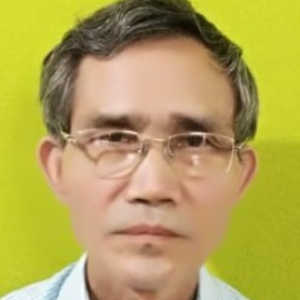Title : Thermoelectrics near room temperature
Abstract:
Major challenge today is the global warming apprehensions due to the destruction of the earth’s ecosystem from the harmful gases such as CO2 or SO2 and by-products released from numerous human activities. The global efforts today in this are to decrease systematically the use of polluting sources of energy while encouraging to use non-polluting sources of energy/ devises such as solar energy, hydroelectric power and thermoelectricity, which in turn attracts lots of overall interest. Towards this endeavour, we also have investigated extensively on thermoelectricity near room temperature in our laboratory. For this, we have designed several new materials with exciting results on polyol method-prepared nanocomposites of non-toxic, naturally abundant and inexpensive elements through introduction of n-type Bi4.8Cu2.94S9 in n-type Bi2S3, semi-metallic Bi in n-type Bi2S3, n-type Ag2S in p-type CuS and metallic Ag in n-type Ag2S, thermal decomposition method-prepared Bi2Te3-BiTe nanocomposites of different particle sizes and so on. They are likely to open up new vistas for development of near-room temperature yet non-toxic and solution-processed thermoelectric. Some of these shall be discussed.
What will audience learn from your presentation?
- The audience can learn how these nanocomposites be easily prepared in laboratory, yet non-toxic, naturally abundant, low cost and in versatile manner.
- The audience can start their research with less budget yet with high quality.
- This research could be used to expand their research or teaching.
- This will provide a practical solution to a problem that could simplify their problems or make a designer’s job more efficient.
It will improve the accuracy of a design, or provide new information to assist in a design problem such as control of the composition of the nanocomposites, particle size, particle shape and structure by simply changing the reaction conditions as reactant quantity, surfactant, reaction temperature and so on.


